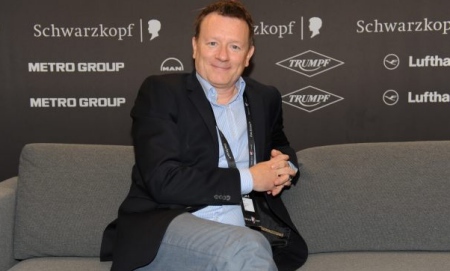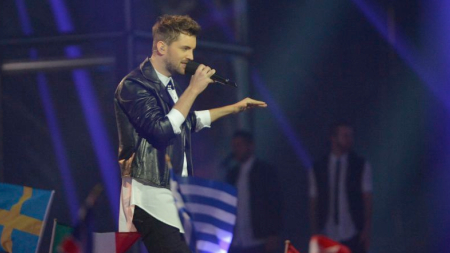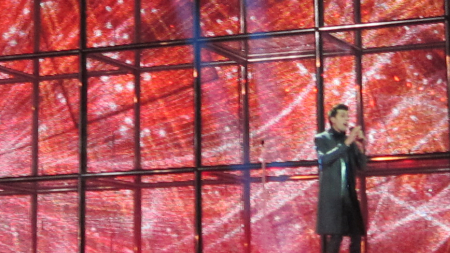The Eurovision Song Contest is far from a once-a-year TV extravaganza. The majority of the Eurovision songs have firstly had to qualify through one of the Semi Finals on either Tuesday or Thursday, this much is well known to Eurovision fans. However it is the second of the three full rehearsals, nowadays known as the Jury show, which is of extra importance in the modern Song Contest. Eurovision voting is made up of the scores coming from the juries the night before the televised show and from people watching at home through the live TV broadcast, with both sides weighed equally.
Ben Robertson now has enough evidence to believe that the performance in the Jury shows of Monday, Wednesday and Friday are now more important than that of the live TV on Tuesday, Thursday and Saturday night. Here he explains why.
Why Do We Even Have Juries In Eurovision?
The Eurovision Song Contest began piloting televoting in 1997 and by the early 2000s was embracing the new found trust in quick social interaction. With that, the Song Contest became a venue for using televoting in every country. However, the problems in this pure form of democracy put Eurovision on the back foot. Too many fans and commentators were bandying around what they were seeing as ‘political voting’ with the same countries rewarding each other with high scores every year and creating a stranglehold on Contest point-scoring that some countries believed was impossible to break into. When juries were reintroduced to the Grand Final in 2009, the Reference Group decided to make the switch in order to try to limit the impact of neighbourly and diaspora voting.
The juries offer more than just the chance to upset the voting tables from expected patterns; they also create the chance for professionals to have a greater say on the Contest’s result. So called ‘joke entries’ poking fun at the competition or gaining support for their over-the-top gimmicks were perhaps fun in the short term. However, such entries did little to raise long-term sustainability of the Eurovision Song Contest being something that would attract the best artists and songwriters. After a few years of refinement, Eurovision juries now have criteria to follow which are there to further focus each juror on rewarding quality acts.
The system is organised as 50/50 system. Each 5-person jury collates their scores to make one result table which is conglomerated with the televote score. However your first port of call is that the 50/50 system as it stands is weighted more towards the jury angle. In the 2014 Eurovision Semi Finals, six countries were not able to reach the (possibly too ambitious) thresholds to record a valid televoting result, meaning their result was 100% jury. Semi Final One, with four nations unable to hit their threshold, was technically decided 61/39 (rounding to the nearest number). The Monday night performance was arguably worth 50% more points than the show broadcast live to the nations.
Eventually, an artist in Eurovision week might have to make sure their jury game is far tighter than what happens on the TV show itself. However, there are far more reasons the juries are arguably even more powerful to the scoring system.

As EBU Executive Supervisor Jon Ola Sand was responsible for ensuring the new jury ranking system was implemented(Photo: Alain Douit, EBU)
The Jury Does Not Vote Like Us
The Eurovision Song Contest system for juries has settled on one voting structure since 2013. Each juror ranks the performances from first place to last place. That means that even though your song might not be their favourite, they still have the chance to influence where they place you in the scoring system. Last year we had our first cases of songs getting zero points because the jury placed a song so low it was all but mathematically impossible for that song to score points despite winning the televote. The aim on the jury show is different and is not about winning, it is not to be the act rated last.
Furthermore it is important to mention another feature is that each jury member, directly after the Grand Final, will have their jury score published for the world to see. This puts an extra professional responsibility on jury members to vote for songs that will keep their professional integrity intact. The jury are therefore on the whole going to be rewarding those artists who give credible and justifiable performances in their show. When the first of the jury criteria is called ‘vocal capacity’ this also ensures the jurors need to be focused on the performances they are watching. Expect this criteria to be watched extra carefully as well as the main block of jury members in 2014 at least came from professional singers.
Jury members do not vote like we do, watching the show and finding our favourite and willing it to victory. They have a job to do. They watch the show as a quintet in a hidden-away part of the host broadcaster’s TV studio and they have to rate every single song from first place to last place. They won’t be distracted by conversations during the entries and will be able to hear every dropped note.
The Juries Do Watch And Do Change Their Minds
Through the Voting Insight series following the full result publication of last year’s Eurovision Song Contest, one trend was particularly noticeable. When looking at the qualifiers from each Semi Final, the jury members overall changed their opinion about the songs much more than the televoters did. In ranking the ten qualifiers from each Semi, only one of the 180 jury members actually changed the relative order they placed those ten songs in. We don’t know if this was due to media pressure or the quality of performance or simply a change of heart, but we do know that these changes happen. When running analysis further we actually found four jury members who changed their mind so significantly that their Semi Final rankings have zero or even negative correlation to their Grand Final scores.
Whereas televoters can be reliable and usually give similar rewards to songs in both shows, the juries are far less predictable from show to show. Televoters usually have pre-established favourites for reasons of politics or just loving a song or its style, and these change little in the gap of a few days. However when a jury is tasked with picking the finest details of the Song Contest they are on the hunt for those minuscule differences that may make up one or two placings in the overall rating.
Some of these changes can be dramatic. A Slovenian jury member last year raised Greece up from 12th place in its Semi Final (eighth compared to the other qualifying songs in that Semi Final) to eight in the Grand Final (in second place compared to the other songs it qualified with). One German juror decided to place Conchita Wurst last in her Semi Final last year, and changed this to 13th for the Grand Final moving Slovenia and Greece down to 23rd and 24th respectively, well below Conchita’s final placing. For whatever reason, juries are much more fickle about their scoring and they are more likely to change their mind in the voting. It means that the performance an artist gives during the un-televised three minutes is extra important.

Some jurors placed Greece higher in the Grand Final last year however many more gave Freaky Fortune a lower relative placing compared to their Semi Final (Photo: Andres Putting, EBU)
Surviving The Jury Final Silence
Marketing-wise, the Eurovision team attempt to showcase the Jury Final as a cheaper alternative that the real show, with the only thing you miss out on from the experience is the real voting happening at the end of the show. In reality though, it is not the same. I managed to have a great seat for the Jury Final of Melodifestivalen this year in Friends Arena and the atmosphere was not a patch on the live broadcast. The arena was half-empty and many times less sober than the live broadcast, and without the live TV cameras sending the images of the happy faces across the nation the crowd was a lot less animated. This increases the already super-high pressure on the artists not to put a foot wrong when the crowd are not here for a big party, they are here to be entertained. Maybe it was me looking out for it more but I saw nerves-a-plenty, Jon Henrik Fjällgren was charming and natural on camera on the Saturday night, but on the Friday performance he was visibly shaking in a way I haven’t seen on stage since poor Julia Kedhammar at Junior Eurovision last year.
If as an artist you have to show and impress the juries it is you who is going to have to bring your A-game to the table. You have to give your song the energy it needs to send down the camera without the help of guaranteed thousands ready to show they are having the time of their life in the arena. It adds another theory as to why ballads may be more jury friendly, but more importantly it shows that you have to really deliver as an artist. You have to be able to prove that you deserve the chance of a top placing, and that you are able to shine above the others competing around you.
A delegation looking to plan their week in Eurovision needs to make sure the team are in 100% condition for the jury performance. A bad run-through could signal game over before it has even begun. When you get to the Grand Final the extra burst of adrenaline is going to carry many over the line through any sickness and ill health for three final minutes. If you hold your top C a second less and miss a couple of dance steps many Saturday night viewers will have missed them anyway. A jury will not, and a jury will mark you down for it. The Eurovision dynamics have changed and the artists who can do the same great performance day-after-day-after-day are the ones who will succeed in this new voting system.










I’d like to know why the jury doesn’t vote on the main show. The credibility of the contest is harmed if acts are marked down for making mistakes which the public never see. Or if they are rewarded for flawless jury performance when millions would have seen them screw up their publicly televised performance.
I also think that juries are being asked too much to rank 27 songs in order. I don’t think anyone can judge in that detail accurately. Many of them probably make arbitrary decisions as we do when confronted with a lengthy questionnaire.
Please EBU remove these unfair, undemocratic juries. Or at least limit their power. At the moment they are the dominant force in ESC, why vote tonight, when the majority of votes are already decided?